6 Critical Differences Between a Generator Head and Generator Engine
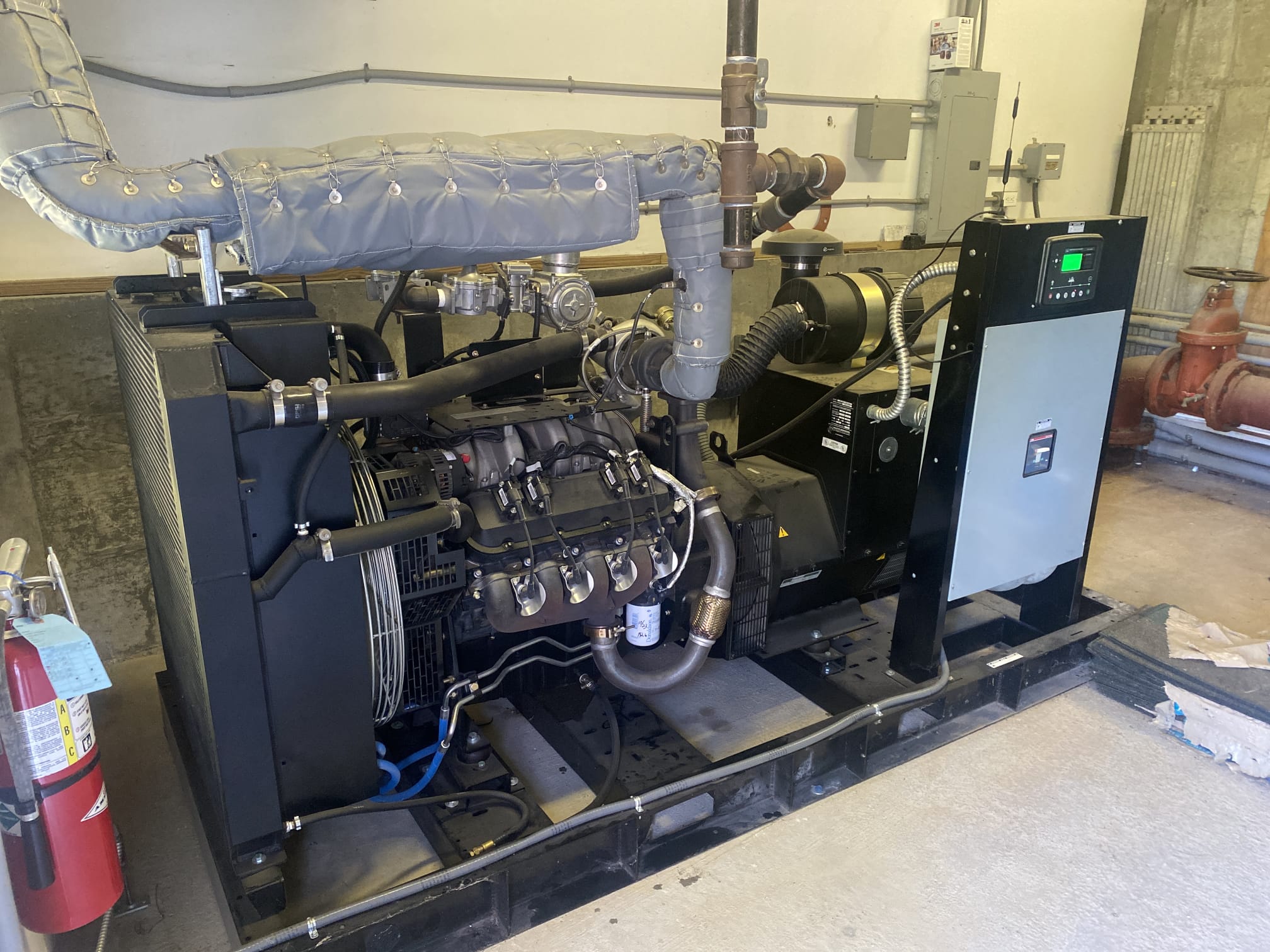
Commercial generators are made up of many components, but the two main pieces are the generator engine and the generator head (also known as the alternator). While they are often referenced together, these components serve very different functions. Knowing the difference between the two and how they work together is essential when evaluating generator performance, troubleshooting issues, or planning for maintenance.
Table of Contents
What Is the Generator Engine?
The engine is the power source of the generator. Just like the engine in a vehicle, its job is to convert fuel (typically diesel, natural gas, or propane) into mechanical energy. This mechanical energy is what drives the generator head.
Key Functions of the Generator Engine:
- Burns fuel to create mechanical motion
- Powers the rotation of the crankshaft
- Drives the generator head via a coupling or shaft connection
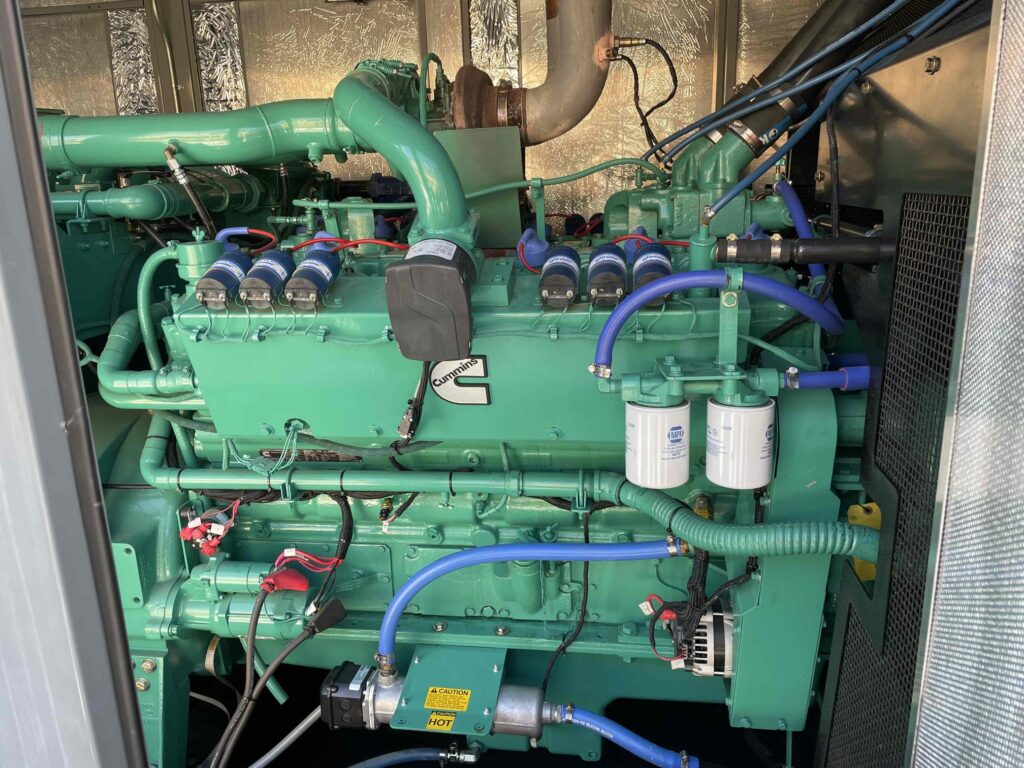
Common Engine Manufacturers in Commercial Generators:
- Cummins
- Perkins
- John Deere
- Volvo Penta
- Mitsubishi
- YANMAR (HiPower)
- Caterpillar (CAT)
What Is the Generator Head (Alternator)?
The generator head, or alternator, is the component responsible for converting the mechanical energy from the engine into electrical energy. It consists of three main parts:
- Rotor (or field): The rotating magnetic field.
- Stator: The stationary coil windings where electricity is induced.
- Voltage Regulator: ensures stable and consistent voltage
As the engine turns the rotor inside the generator head, a magnetic field spins past the stator windings, creating an electrical current through electromagnetic induction. The voltage regulator controls this electrical current to ensure a stable and consistent voltage output, preventing over voltage or under voltage conditions that could damage sensitive equipment. This is the power your building, equipment, or facility uses during an outage or off-grid application.
Key Functions of the Generator Head:
- Receives mechanical energy from the engine
- Uses electromagnetic induction to produce AC power
- Regulates voltage output with the help of a voltage regulator
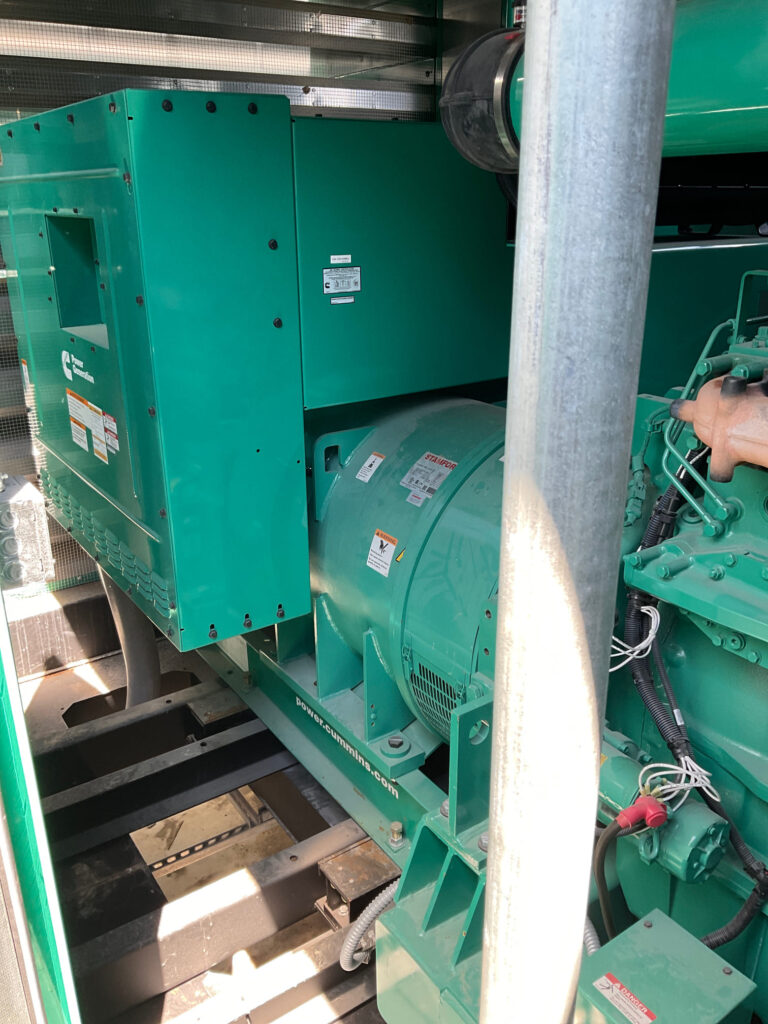
How the Engine and Generator Head Work Together
Think of the relationship between the engine and the generator head like that of a bicycle: the engine is the rider pedaling, and the generator head is the wheel that propels you forward. Without the rider, the wheels don’t move. Without the wheels, the pedaling goes nowhere.
In practical terms:
- The engine starts and runs using fuel
- the engine turns a crankshaft, which is mechanically connected to the rotor inside the generator head
- The rotor spins, creating a moving magnetic field
- This magnetic field interacts with the stator to produce electricity
- The voltage regulator ensures the output is stable and usable for your equipment or facility
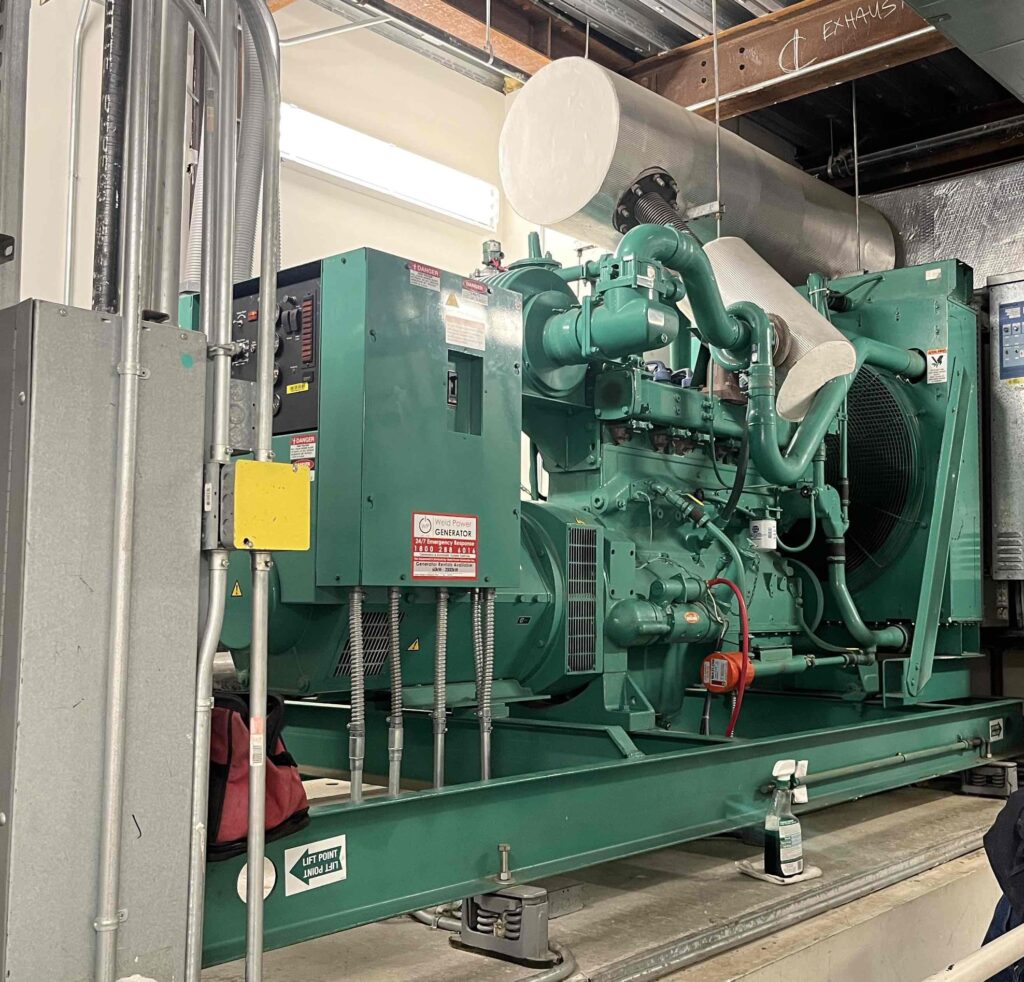
Why This Matters for Maintenance and Repairs
Understanding these components is especially important when troubleshooting performance issues. For example:
- If the engine starts but no power is produced, the issue is likely with the generator head or voltage regulator
- If the engine won’t start or runs erratically, the problem is usually on the engine side, such as fuel delivery, filters, or sensors.
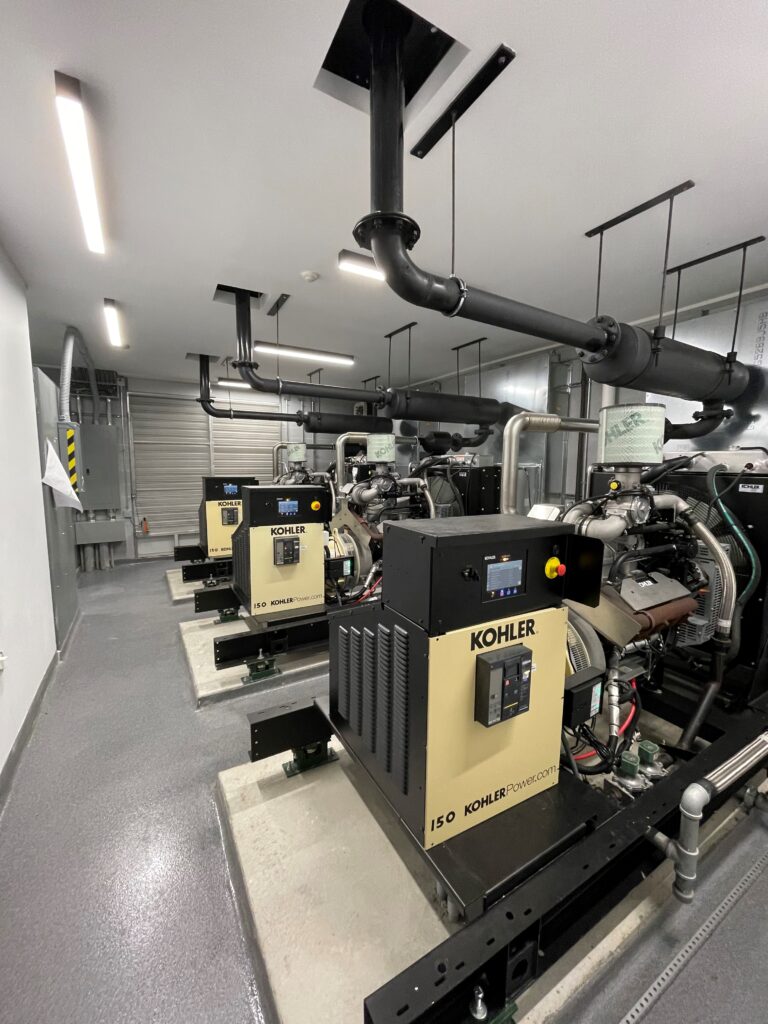
Summary
The engine provides the muscle, and the generator head converts that muscle into electricity. Both parts are vital for commercial generator operation and must work in perfect harmony to ensure reliable power.
Weld Power Generator offers expert maintenance and repair services to ensure your commercial generator operates at peak performance. Our certified technicians specialize in both engine and alternator systems, allowing us to diagnose and resolve issues across the full generator assembly. We perform preventative maintenance tasks such as oil and coolant changes, fuel system inspections, load bank testing, and performance tests. In the event of a failure, our 24/7 emergency response ensures minimal downtime, and our access to OEM parts allows for rapid, reliable repairs. Whether you’re managing a healthcare facility, data center, or industrial site, Weld Power Generator provides the technical expertise and responsiveness needed to keep your critical power systems online and compliant.
Need help with troubleshooting or maintaining your commercial generator? Contact our team today to schedule a site visit or preventative maintenance service.
